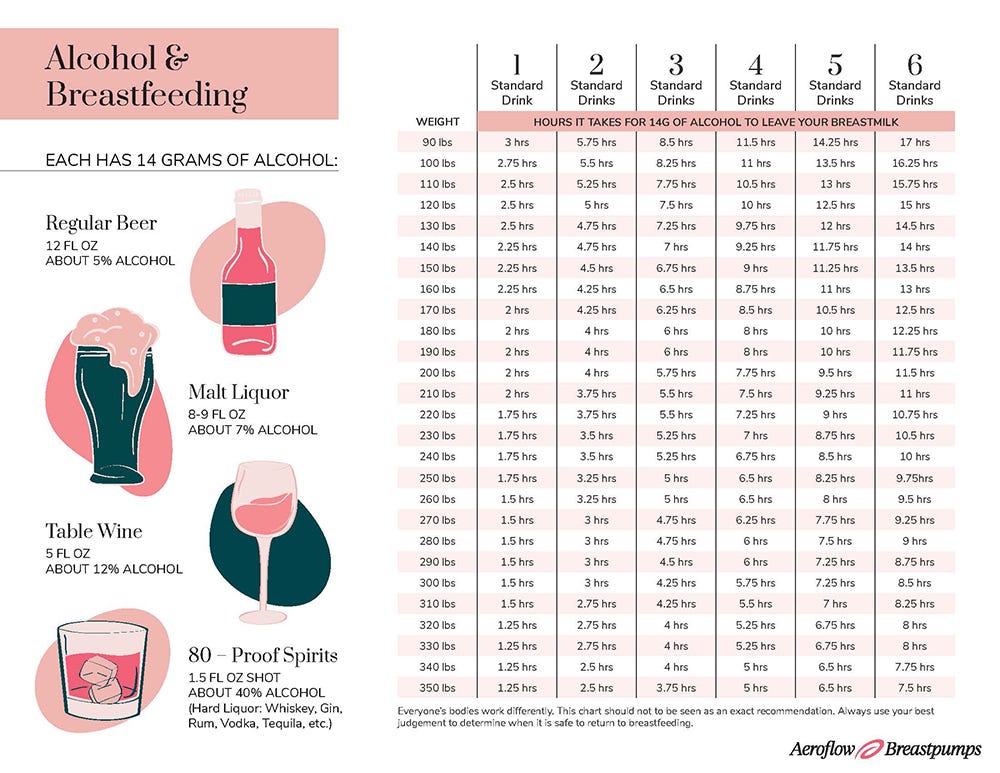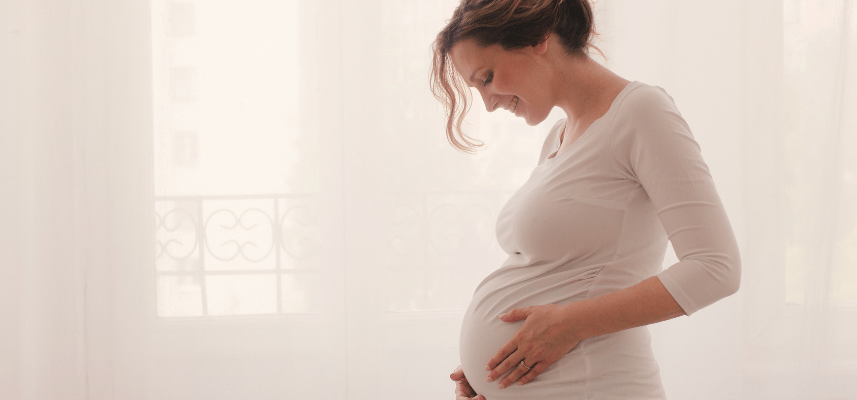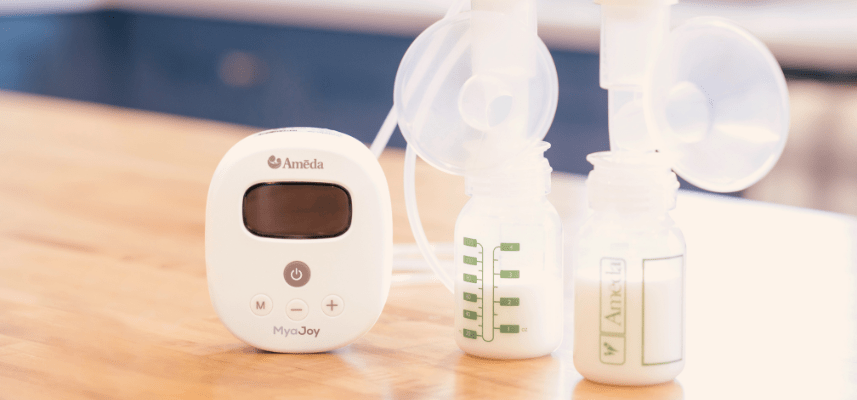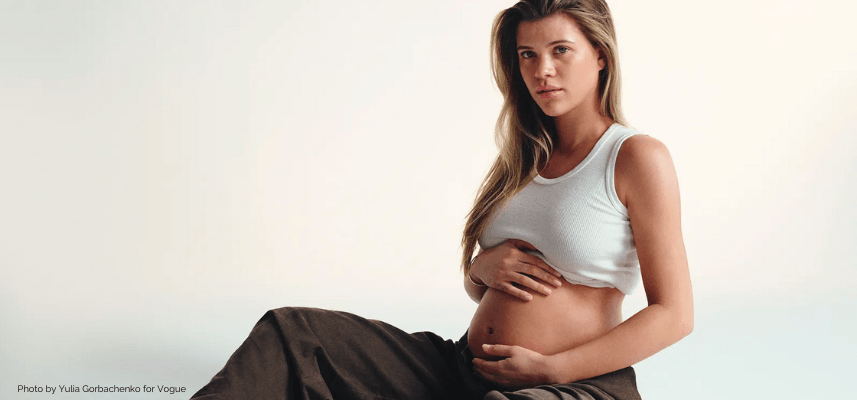Many new moms often wonder if they can safely enjoy a glass of wine or a beer while still breastfeeding responsibly. The simple answer is yes: limited amounts of alcohol while breastfeeding will not harm your baby in any way. As with anything food or beverage, your body will eventually metabolize it.
With that being said, this doesn’t mean that alcohol in all amounts or frequencies is safe while breastfeeding. There are some important rules and guidelines to remember about drinking alcohol safely while you are breastfeeding. Here are our top tips:
Alcohol and Breastfeeding
Because alcohol does pass through breast milk to a baby, The American Academy of Pediatrics suggests abstaining habitual alcohol consumption while pregnant or breastfeeding. There is no level of alcohol in breast milk that is considered safe for a baby to drink, so if you do choose to drink, it’s important to make sure the alcohol has been completely metabolized and is out of your system before breastfeeding.
Stick to One Alcoholic Drink
It is recommended to stick to one to two alcoholic drinks per week when you are a breastfeeding mom, and ideally, no more than one drink per day. Because you’ve likely abstained from alcohol during your pregnancy, you may find that your tolerance is low, so starting slow will prevent you from inadvertently overdoing it. Plus, one drink means you won’t be able to breastfeed for a few hours, which can be achieved once you have a napping rhythm and depending on baby needs.
What is one standard drink?
- 12 fluid ounces of beer
- 5 fluid ounces of wine
- 1.5 fluid ounces of distilled spirits
It’s also important to consider your body weight, shape, and size when you are enjoying a glass of anything alcoholic. The smaller you are, the longer it tends to take for your body to metabolize alcohol and for your blood alcohol content to return to normal. For example, a 170-pound woman can metabolize an alcoholic beverage in 2 hours, whereas a 90-pound woman will likely need 3 hrs. Review the chart above and use it to guide how long you need to wait until you breastfeed.
Does drinking alcohol help increase milk production?
Despite what you might have heard, alcohol has been proven to inhibit let-downs and decrease milk production. While babies might nurse more frequently in the hours after you have had a drink, their milk intake is usually lower than usual. Additionally, alcohol dehydrates your body and makes you lose body fluid more quickly. There is no way that dehydration will help you produce milk! Alcohol can also change the color of your breast milk, and some babies might drink less milk as a result.
What about beer?
Does drinking beer increase breast milk production? You may have heard that beer actually helps breast milk production, but unfortunately, it’s not true. Beer does not increase your milk supply. As with other alcoholic beverages, the alcohol in beer can actually decrease your milk supply, inhibit letdowns, and slow down your baby’s weight gain.
So, where did this myth come from? Barley and hops, when isolated outside of an alcoholic drink, can potentially increase milk supply, but it’s better to get those components in a non-alcoholic form. Otherwise, the alcohol content sort of outweighs the value of the barley and hops.
Pump and Dump
Pumping milk and dumping does not speed up the process of metabolizing alcohol or lowering your blood alcohol levels. Alcohol leaves your milk the same way it leaves your bloodstream. That same milk you considered pumping and dumping would be safe to feed your baby once your body has metabolized the alcohol. The alcohol concentrations in breast milk closely resemble those in maternal blood. As long as there are levels of alcohol in your blood, there's alcohol in your milk.
Alcohol in Breast Milk
How risky is it, really, to breastfeed shortly after a single alcoholic beverage? What are the adverse effects of exposure to alcohol from breast milk? While it can be tempting to nurse your little one sooner than two hours after your beverage (especially if they’re fussy), it is crucial that you hold off.
Babies who consume alcohol in breast milk can become drowsy, and have irregular feeding and sleep pattern disturbances due to the effects of alcohol. Long-term effects can include impaired and delayed motor development and skills.
Childcare and Alcohol
After the elimination of alcohol for nine months and managing middle-of-the-night feeds and diaper changes, you might find that one drink feels more like two or three! It’s important to consider how you’re going to care for your baby after alcohol use and alcohol intake, beyond just breastfeeding. You may find that your reaction times, coordination, and decision-making skills aren’t as sharp as they normally are.
If you are going to be drinking, take it slow and make sure you plan ahead in case the alcohol does hit you harder than expected. Consider your diet as well. Having a sober adult or caregiver available to help out is an important safety measure that allows you to relax, knowing that your baby will be safely cared for.
While no amount of alcohol is safe for your breastfed baby to consume, drinking alcohol in moderation can be done safely and responsibly. If you choose to have an occasional drink, you're not alone. Many breastfeeding mothers enjoy a beer or a glass of wine postpartum. If you have concerns, reach out to your healthcare provider.
If you have any questions, feel free to reach out to one of our lactation consultants or join our group Aeroflow Breastpumps: The Pumping Room to be a part of a community of new and seasoned moms, parents, partners, and support people.
References












